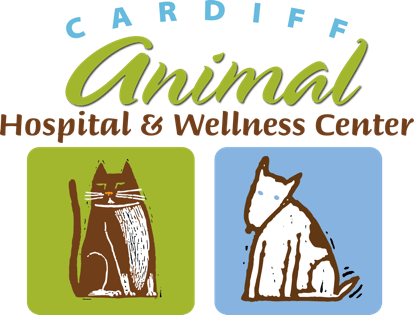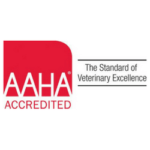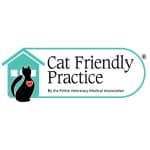Comprehensive Pet Care in the Heart of Cardiff
At the Cardiff Animal Hospital & Wellness Center, we offer a wide variety of services to care for your pet. Conveniently located in Cardiff, we encourage you to schedule an appointment to come in and meet with our doctors and staff, then take a walk down to the beach or any of our many local shops, restaurants, or eateries, while we lovingly care for your pet.
Scroll down to learn more about the services we offer.
Orthopedic Surgery
We are proud to offer orthopedic surgical procedures for injuries and conditions to soft tissue areas of your pet’s body. We utilize state of the art diagnostic imaging to enhance our capabilities for soft tissue surgery, ensuring that your pet has access to the highest standard of veterinary medicine.
Our surgical team is highly trained and experienced in soft tissue orthopedic procedures, so you can rest assured that your pet is in good hands. We promise to communicate with you throughout the process and make your pet’s surgery as stress-free as possible.
TPLO Surgery (Click here to learn more.)
There are two primary ligaments inside the knee that control movement between the femur and the tibia: one is called the caudal cruciate ligament, and the other is called the cranial cruciate ligament (CCL) (analogous to the human ACL, or anterior cruciate ligament). In both species, the CCL/ACL is prone to tearing, resulting in a partial and complete rupture. After partial or full rupture of the CCL, the excessive motion between the femur and the tibia leads to pain, inflammation and swelling of the joint, cartilage damage, and osteoarthritis.
Dogs with a partial or complete tear of the CCL will usually be quite lame in the acute stages of the disease, which will improve somewhat over time. This does not, however, mean that the CCL is healing, as damage to the CCL is not reversible. Once the fibers begin to tear, instability of joint ensues, which will only continue to progress with time. Surgery is required to correct the condition and to improve your pet’s comfort.
Multiple studies have repeatedly shown that in both the immediate (initial days to weeks) and long-term (months to years), dogs do significantly better with surgical repair versus medical management of CCL rupture.
There are three different commonly used surgical repair techniques: the Tibial Plateau Leveling Osteotomy (TPLO), the Tibial Tuberosity Advancement (TTA), and the extracapsular suture repair.
Other Surgeries
- FHO/FHNE
- Hip Luxation
- Toggle Pin
- Patella Luxation
TPLO
TPLO Surgery (Click here to learn more.)
There are two primary ligaments inside the knee that control movement between the femur and the tibia: one is called the caudal cruciate ligament, and the other is called the cranial cruciate ligament (CCL) (analogous to the human ACL, or anterior cruciate ligament). In both species, the CCL/ACL is prone to tearing, resulting in a partial and complete rupture. After partial or full rupture of the CCL, the excessive motion between the femur and the tibia leads to pain, inflammation and swelling of the joint, cartilage damage, and osteoarthritis.
Dogs with a partial or complete tear of the CCL will usually be quite lame in the acute stages of the disease, which will improve somewhat over time. This does not, however, mean that the CCL is healing, as damage to the CCL is not reversible. Once the fibers begin to tear, instability of joint ensues, which will only continue to progress with time. Surgery is required to correct the condition and to improve your pet’s comfort.
Multiple studies have repeatedly shown that in both the immediate (initial days to weeks) and long-term (months to years), dogs do significantly better with surgical repair versus medical management of CCL rupture.
There are three different commonly used surgical repair techniques: the Tibial Plateau Leveling Osteotomy (TPLO), the Tibial Tuberosity Advancement (TTA), and the extracapsular suture repair.
Soft Tissue Surgery
Here at Cardiff Animal Hospital & Wellness Center, we are proud to offer Encinitas, CA and the surrounding communities the best veterinary care possible. This also includes our surgery team! We make it our goal to stay on top of medical and veterinary surgical procedures. Our surgeons are highly skilled and trained in the best and latest technologies. However, we also know that it is not only about us! Surgery is very stressful for you and your pet! It is our job to assure you that your pet is in good hands. We will do everything that we can to take good care of your pet while he or she is staying with us. We proudly offer the following type of soft tissue surgery:
- Splenectomy
- GI obstruction
- Limb amputation
- Stenotic nares
- Soft palate resection
- Anal sacculectomy
- Mass excisions
- Gastropexy
- Endoscopy
- Laparoscopy (Lap “LOVE” Spays)
- And more!!
Click here to learn more about these procedures. It is also our job to keep in touch with you. There are things that you need to know before, during, and after your pet’s surgery. We will do our best to communicate with you the whole time. It is our goal at Cardiff Animal Hospital & Wellness Center to make the entire surgery process go smoothly for you and your pet. We also want to do anything that we can to do to eliminate the stress and worry of the whole surgical process. Please feel free to contact us today with any questions or concerns that you may have. One of our knowledgeable staff would love to help you!
Endoscopy and Laparoscopy
Endoscopies are minimally invasive procedures that are performed through either tiny incisions, or natural openings in the body. These procedures have a multitude of benefits including minimal recovery time, less pain, fewer complications, and more.
Cardiff Animal Hospital performs a variety of endoscopic procedures. If you’d like more information, please read the Lap “LOVE” Spays toggle or give us a call.
Lap "LOVE" Spays
Compared to a traditional spay, a Laparoscopic OVarioEctomy (“LOVE” Spay) offers:
- Precise surgical technique with minimal tissue handling means significantly less surgical trauma for your pet
- Up to a 65% reduction in post-operative pain
- Reduced risk of intra-operative bleeding
- Nearly 5x’s faster recovery!
- Option to add-on gastropexy for large-breed and deep chested dogs
- AAHA Accredited hospital with Fear Free Certified professional staff
Dentistry
Periodontal disease affects nearly all dogs and cats by the age of 3 years. The bacterial infection in the mouth associated with periodontal disease has been associated with heart, liver and kidney disease. This chronic infection also affects general systemic health and is a source of pain and discomfort for the pet. Dogs and cats often show no symptoms of periodontal disease, so an oral exam by a veterinarian at least every 12 months is critical.
At Cardiff Animal Hospital & Wellness Center we strongly promote preventive dental care, as most periodontal disease is PREVENTABLE. Preventive care includes home care (tooth brushing, Hill’s Prescription t/d diet, mouth rinses and chews) as well as periodic dental cleanings and evaluations under anesthesia. We provide high quality cleaning, evaluation, digital dental x-rays, and treatments including extractions, oral surgery, restorations/bonding, and referral to a specialist (veterinary dentist) when appropriate.
Our dentistry is a cut above what is offered at most veterinary hospitals. We take the utmost care with each patient, utilizing an individualized anesthetic protocol, intravenous catheter and fluid administration during the procedure, a technician dedicated to the monitoring of anesthesia, and a doctor present at all times during the procedure.
Following is an overview of the dental procedure offered at our hospital:
- Prior to scheduling the dental procedure, a thorough awake oral exam and comprehensive workup is performed (all patients require blood work, and in some patients other tests such as urinalysis, chest x-rays, or cardiac ultrasound may be recommended).
- The day of the dental procedure, a complete exam is performed, premedication is given, and an intravenous catheter is placed to provide intravenous fluids and administer anesthetic drugs.
- Once the pet is under anesthesia, one technician is dedicated to monitoring anesthesia (heart rate, respiration, pulse oximeter, end tidal CO2, body temperature, and blood pressure); these parameters are regularly checked and recorded.
- An experienced, trained veterinary technician uses an ultrasonic scalar to clean all the tooth surfaces above the gum line, and a special periodontal tip to clean below the gum line (the most important area); the teeth are then polished.
- Dental x-rays are obtained to evaluate the health of the tooth roots and supporting structures below the gum line and provide important information in determining the extent of periodontal disease and approach to therapy.
- Our doctor has received advanced training in dentistry and carefully examines the mouth and all teeth individually, evaluating pocket depths at six points around each tooth, and evaluating all aspects of the teeth (checking for mobility, discoloration, fractures, tooth resorption, and other abnormalities); these findings are recorded in a dental chart. The doctor also carefully examines the dental x-rays to evaluate structures below the gum line, and a treatment plan is formulated to address any problems which are identified.
- If extractions, oral surgery, tooth bonding, or other corrective dental procedures are necessary, the doctor will contact the owner by telephone and most procedures can be completed that day.
- Quadrant nerve blocks, as well as intravenous pain medication, are used to assure the highest comfort of the patient.
- During recovery, patients are closely monitored and vitals are checked regularly until the pet is ready to be discharged.
- When your pet is discharged, a full report is provided which outlines the findings of the dental exam, any corrective treatment performed, and detailed discharge instructions. We also work with you to create a customized program of home dental care to further extend the benefits of the professional cleaning.
- The day following your pet’s dental procedure you will be contacted to make sure your pet is doing well.
General Medicine
We are dedicated to providing the highest standard of medical care to our animal patients. We believe in utilizing state of the art medical technology and equipment to provide the best care possible to your loved ones.
We have a vast array of tools and tests that allow us to provide high-quality medical care. Your pet’s health is our top priority, and we promise to continually improve our hospital with the goal of always setting the standard of veterinary medicine.
Preventative Care
Preventative care is the best way to promote a pet’s overall health and help keep them healthy over the course of their life. We highly recommend preventative care plans in addition to routine checkups.
It’s common for health problems to go undetected for extended periods of time, so routine and preventative care is vital in catching potential health concerns early.
To learn more about preventative care for your pet, please call us today with any questions, comments, or concerns you may have.
Full Service Diagnostics
Digital X-Ray
At Cardiff Animal Hospital & Wellness Center we are proud to be on the cutting edge of medical technology. Radiology is a technique and diagnostic tool that we use to look inside the body in an entirely non-invasive way. X-rays allow us to create images of all the body’s organs.
In other words, the use of radiology gives us a view of the internal organs in your pet’s body that we otherwise could not see. It’s a valuable diagnostic tool that helps veterinarians detect and prevent illness.
The use of radiology is safe, and our entire staff is highly trained. It is our goal to provide your pet with the highest level of medical care possible, and this is just one of the many ways we achieve that.
In-House Laboratory
Our in-house laboratory allows us to perform an array of diagnostic tests that help us care for your pet. This ranges from simple laboratory tests to more complex diagnostic tools that help us in treating your pet.
Ultrasound
Ultrasound uses sound waves to offer a non-invasive, painless, and radiation-free method of imaging your pet’s internal organs. This is one of the many ways we are dedicated to providing your pet with the best care possible.
By using ultrasound, we have yet another powerful tool at our disposal to detect, diagnose, and prevent illness in your pet.
Pain Management
Pain is a terrible thing. Cardiff Animal Hospital & Wellness Center wants to alleviate as much pain and discomfort in our patients as possible. In an effort to bring you the highest quality care, we are dedicated to providing top-notch pain management.
When our pets are in pain, so are we. It’s an awful feeling to know that your special friend is hurting, especially when there isn’t anything you can do to help them. It is our goal to eliminate as much pain as possible and to give these pets a better quality of life.
Therapeutic (“Cold”) Laser Therapy
Cold Laser is a state-of-the-art alternative therapy to assist with pain and healing. It can be used after surgeries to help increase blood flow to local areas, improving healing. It can also be used for chronic pain, helping to increase blood flow to those areas. Ask your pet’s veterinarian how your pet would benefit from our Cold Laser Therapy.
Acupuncture
Medical Acupuncture works by using therapeutic effects of needling. The needles activate nerve fibers by the point of insertion. These stimuli then bring changes that help to balance nerve signaling and neurotransmitter activity from the “periphery”(ie.acupuncture point) of the central nervous system (ie. the brain and spinal cord) and autonomic system (ie. centers that govern processes like glandular activity, immune status, digestion, mood, and more). Acupuncture also helps release tension from the muscles and enveloping fibrous network called “fascia.”
Regenerative (Stem Cell & PRP) Therapy
Stem Cells have been proven to help animals suffering from a variety of conditions like arthritis and tendon or joint issues. This procedure is a regenerative process that allows your pet to better cope with their changing bodies. Stem cells hold immense promise for medical treatment because they can take on the traits of all kinds of cells and then replicate many times over.
The regenerative cells that are collected do several things: they release chemicals that help decrease inflammation; they send out chemicals to the body to bring healing cells into that area, and they have the potential to regenerate damaged tissue.
Hospice Care
During the planning of your pet’s hospice care, we encourage you and your family members to ask questions. As the advocate for your pet, it is up to you to make decisions for creating an end of life plan that will allow for a peaceful and dignified passing. We understand that this is one of life’s most difficult times and we believe that making informed decisions is the best way to put your mind at ease.
In-Home Euthanasia
Saying goodbye to your pet can be extremely difficult. The process can be emotionally and mentally draining. We don’t want you to be alone at the end stages of a pet’s life, and we promise to do everything we can to make it easier on you and your pet. Most of all, we promise to treat each case with compassionate and understanding care.
Knowing when the time is right can be a difficult choice. There are many factors that go into deciding to euthanize a pet, and it is a personal issue that differs from pet owner to pet owner. But every pet owner is inevitably faced with making that tough decision, and we want to be there alongside you to aid in any way we can.
If you have special requests, please let us know, and we will be sure to accommodate them. Dealing with the end of a pet’s life is never easy, but we want to do whatever we can to make the process less complicated.
Medical Bathing
Depending on the severity of your pet’s skin issues, medical bathing may be recommended once or twice a week. Typically, pets dealing with allergies, skin disorders, or any other medical issue related to the skin may require a medicated bath. Shampooing may be time-consuming, but it can provide many benefits like decreasing the length of time needed for antibiotic therapy; reducing the numbers of bacteria and yeast on the skin, and decreasing the number of allergens that can be absorbed from the skin surface.
Wellness Plans
At Cardiff Animal Hospital, we believe that regular checkups and wellness exams are critical to your pet’s well-being. These wellness exams give us a chance to evaluate the overall health of your pet while also giving us a baseline for their own unique bodies and tendencies.
Not only do these exams keep us up-to-date with your pet’s health, but they also allow us to detect potential problems before they become serious. Your pet will be thoroughly examined by a veterinarian, and this checkup gives us vital information to help keep your pet healthy.
Regular wellness exams also make your pet more familiar with our veterinary hospital, which makes future visits easier on them and you.
Have a Question?
We're here to help! Please complete the form below and a member of our team will get back to you as quickly as possible. If you'd like to schedule an appointment or have an urgent matter, please call us at 760-436-3215.







